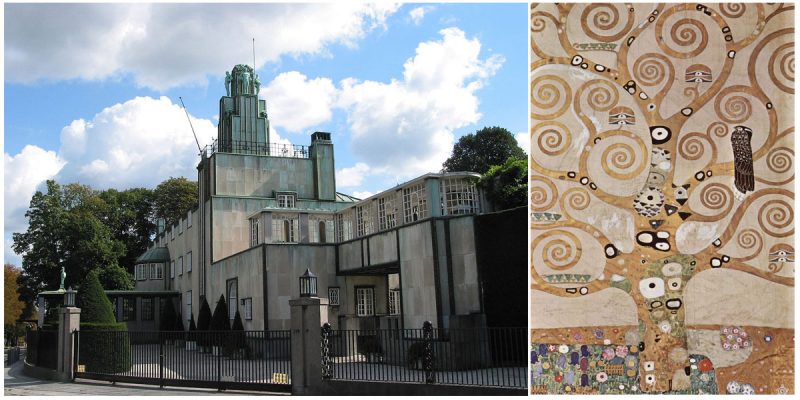The Stoclet Palace is a private mansion in Brussels, Belgium. It was built between 1905 and 1911 for the wealthy banker and art collector Adolphe Stoclet by the architect Josef Hoffmann.
The place is considered to be one of the most luxurious private houses of the 20th century and is located in the Sint-Pieters-Woluwe area in Brussels. The design of the building was marked as a turning point in Art Noveau and the Modern Movement in architecture because of its abstract geometry.
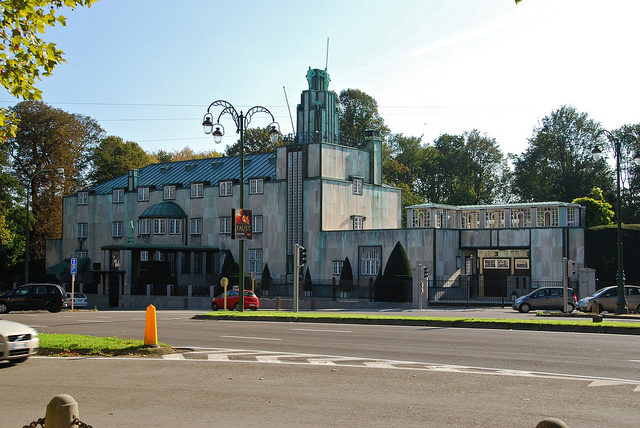
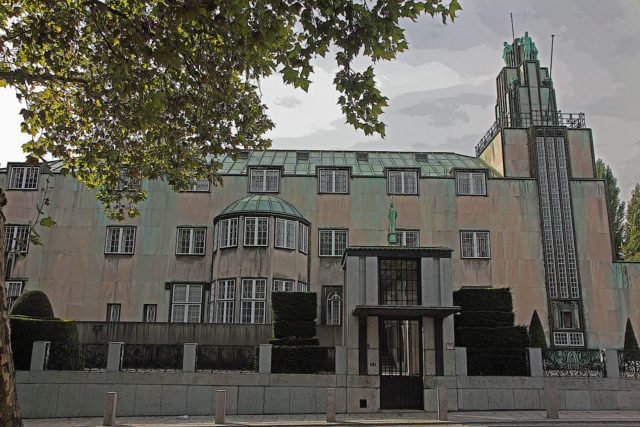
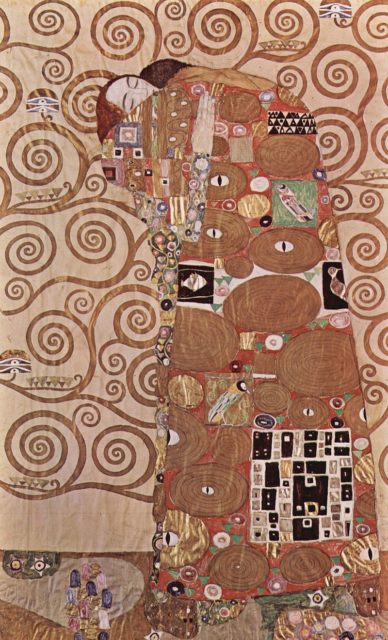
The exterior of the palace has a gray façade, and the starkness is softened by artistic windows. This residential project was the first of the Vienna Workshops which were co-founded by Hoffman. They designed every aspect of the palace, and it was made out of marble, hardwood, and gilt.
Decorated with marble paneling and artworks, the interior also includes mosaic friezes by Gustav Klimt. Klimt also made sketches for the dining room which today are part of the collection of Museum fur Angewandte Kunst in Vienna.
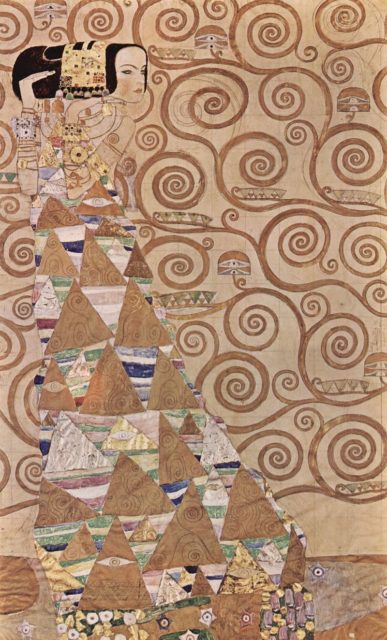
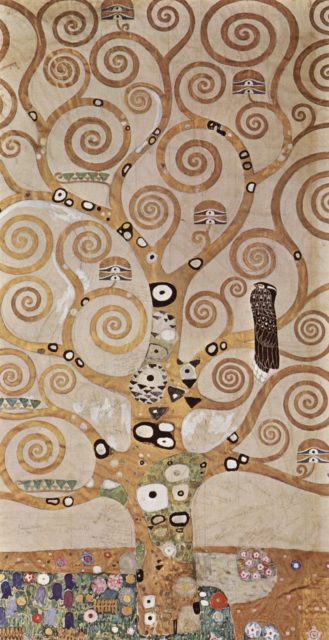
There are three series of mosaics that were designed by Klimt which depict the Tree of Life, embracing couple, and an exotic dancer. They are spread across the dining room on three walls. This room is the finest room in the mansion, and besides the mosaics, there is a dining table with plates and wine glasses surrounded by 24 matching chairs covered in reindeer skin.
According to Wikipedia, the building was designed to appear from the road as a stately city mansion. The joined work of architects and artists makes the Palace an example of Gesamtkunstwerk (Total work of art) which is one of the characteristics of the Art Noveau. After the death of Adolphe Stoclet in 1949, the house was inherited by Annie Stoclet who was Stoclet daughter-in-law, and after her death, it was inherited by her daughters. The Stoclet Palace is the only one of its kind in Brussels and cannot be visited.
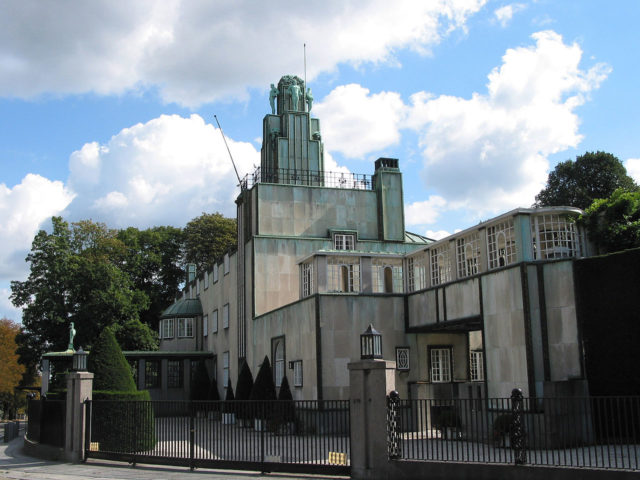
It is still occupied by Annie Stoclet’s daughters, and there is dissension between them for the future of The Palace. Until today, no visible changes or alterations have been made in the house, except that most of the artworks have been sold.
The mansion was designated as a world heritage site by UNESCO in June 2009.
